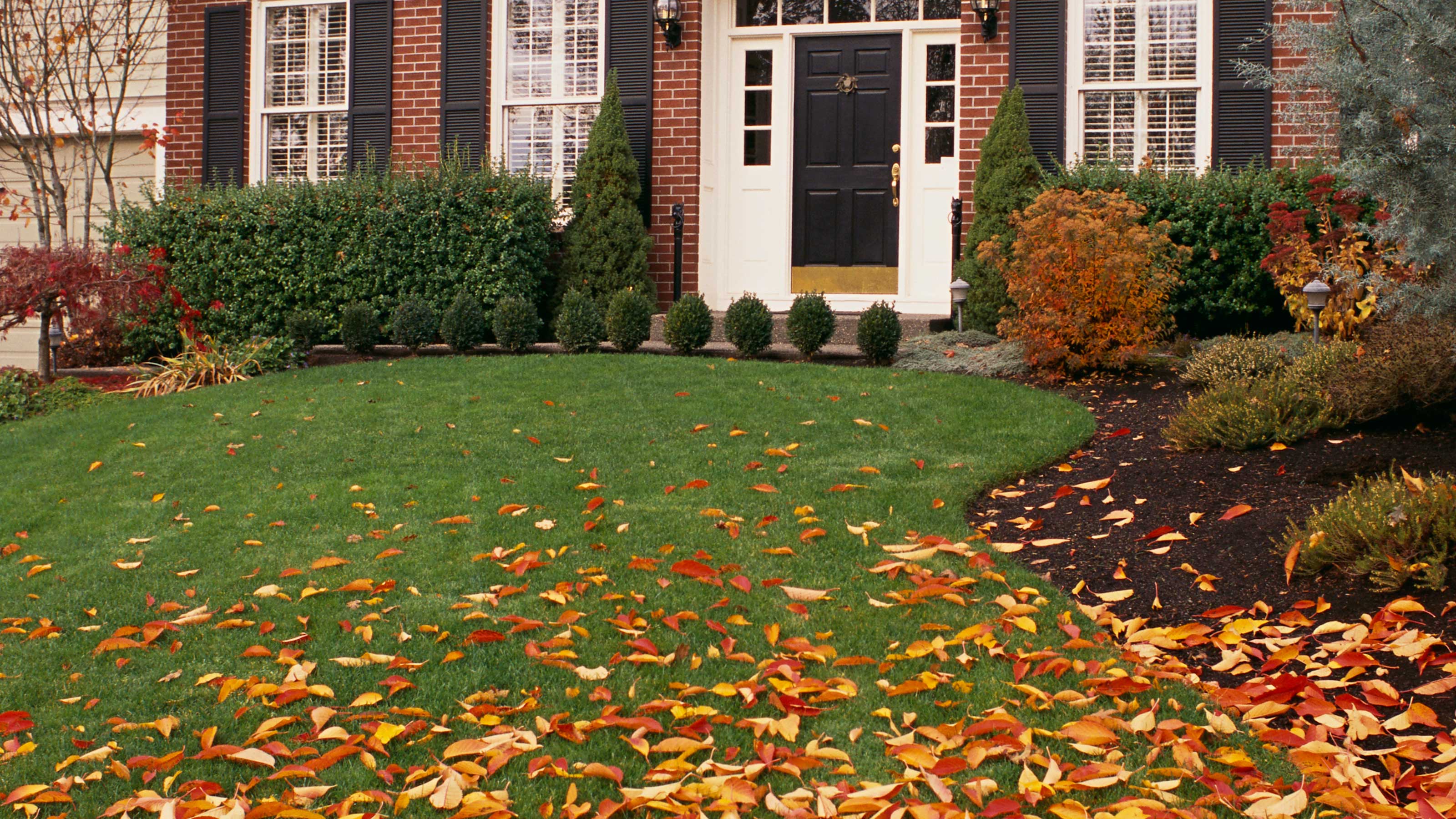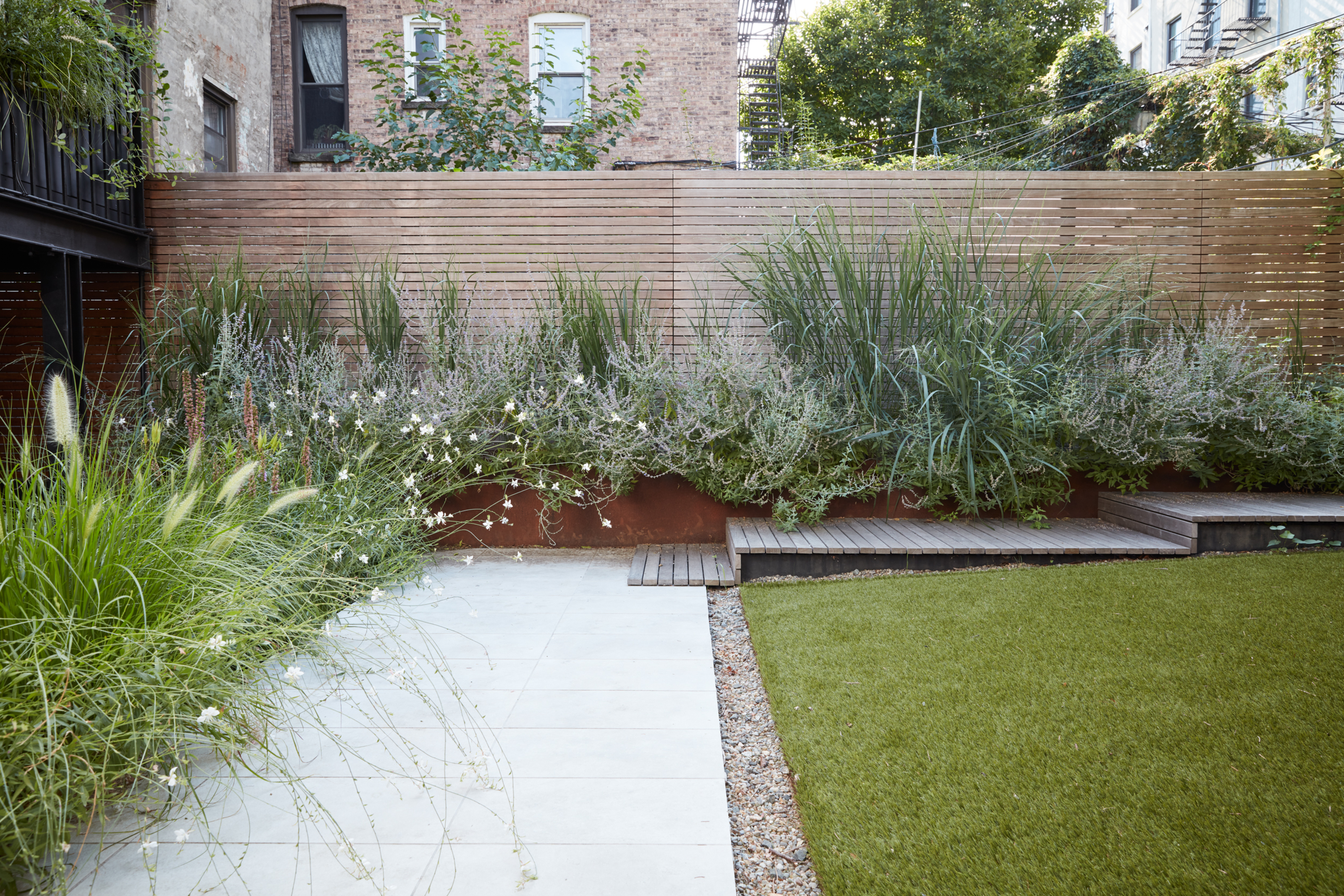
It's important to care for and tend to your lawn even when the summer sun begins to set and the winter crisp makes its way onto your doorstep. Winterizing in the fall is the key to healthy, green grass for the seasons to come.
Winterizing essentials prepares your garden for the winter and involves protecting the soil, amending it, mulching, and even removing old plants.
Preparation is important for a thriving lawn, and preparing your lawn for frost will give you much to look forward to, come spring. We've spoken to a few gardening experts to get the lowdown on lawn care and what you need to do to winterize your lawn.
Winterize a Lawn
These are a few gardening jobs you'll want to take on to winterize a lawn correctly. But first, let's get the right tools at hand to get those tasks done, successfully.
TOOLS
• A rake, like this Expert Gardener, 24-inch Wood and Poly Leaf Rake from Walmart.
• A lawn mower
• Grass seed - This Scotts Turf Builder Grass Seed Sun & Shade Mix with Fertilizer and Soil Improver is just $34.97.
• Grass trimmer
Now that you have the right tools, here's how to winterize a lawn.
1. Rake the last of the leaves

Lawn care 101 is understanding the ins and outs of what your yard needs, and if the trees in your yard are still dropping their leaves, it's time to rake and make use of them — you can add these leaves as compost and bring life back to your lawn.
"For larger piles of leaves, collect them and make a leaf mold pile," says Charlie Nardozzi, author of Month-by-Month Gardening, New England. "Simply pile the leaves up, contain them with flexible wire fencing, and let them sit. After a few years, you’ll have usable compost."
Alternatively, Charlie says you can collect excess leaves and place them in your annual flower or vegetable gardens. He adds: "Till them in, and they should be partially decomposed by spring. Or use chopped leaves to protect tender roses, perennials, and groundcovers. Whole leaves will mat down and retain moisture next to the stems, causing rot. Chopped leaves have more air spaces and tend not to mat down." You can even mulch leaves for a lawn using specialist lawnmowers, too.
2. Mow for the last time

In some places, it's about now that you should stop mowing your lawn for winter. "It’s time to wrap up the mowing and lawn-care season in New England," says Charlie Nardozzi. "If you haven’t already, mow one final time, leaving the lawn about two inches high. Make plans to protect your lawn from snowplows by driving stakes along the driveway and sidewalk. This will lessen the chance of a snowplow ripping up the turf."
"Once you’re finished mowing the lawn for the season, clean your mower, removing old grass, dirt, and debris — these can contribute to the metal rusting and weakening. Either prepare the mower for spring now by sharpening the blade, changing the oil, and checking the filters or wait until later in winter."
This advice obviously differs depending on which USDA cold-hardiness zone you live within and the climate in your area. According to Kate Copsey, author of Month-by-Month Gardening, New York and New Jersey. "November is too late to do anything to your lawn, but you can make notes as to what you’ll need to do to address any problems you had this year."
3. Drain the sprinkler

It's important to care for garden tools and equipment so that they don't degrade, break, or rust when they're not in use. This is particularly pertinent for items not required for the coming colder and wetter months.
"Lawn watering should be finished for the season in New England," says explains Nardozzi. "Usually we get enough fall rains to keep the soil moist for newly seeded lawns and sod. Remove lawn sprinklers and have automatic watering lines and sprinklers cleaned out and checked this fall before turning them off for the season."
"When we're heading into winter, the most important thing is to drain out your sprinkler system," says landscape gardener, Michael Glassman on behalf of Rainbird. "Once it freezes, any residual water in the pvc pipes will turn to ice and expand, which will burst the pipes." So if you have sprinklers, make sure you drain the system down and turn it off completely.
4. Finish overseeding your lawn

If you want to prevent weeds from taking over your lawn, you can give it some grass seed. "The key to preventing weed, disease, and insect attacks organically is to have a healthy lawn grass with deep, thick roots," says Charlie Nardozzi. "To achieve this, you’ll need to build up the fertility of the soil under your lawn."
The expert continues: "While November tends to be too late to successfully sow lawn grass seed in New England, you still can overseed your lawn to help fill in thin areas and create a lush lawn."
Charlie says you should overseed lawns with grass seed adapted to your lawn’s growing conditions. "Select a mix high in Kentucky bluegrass for sunny spots and one high in fescue for part-shade locations," he adds. "Even if your lawn looks healthy, overseeding by spreading the grass seed over existing grass will enable even more grass to grow and thicken the grass in thin areas."
5. Trim ornamental grasses

It's not just lawn grass that needs tending to before winter sets in. Any tall or ornamental grasses for privacy that surround your lawn will also need some attention too.
"Another good lawn job to do in November is cutting down the applicable tall ornamental grasses," says Quinten O'Dea, founder of Pittsburgh-based Q&A Landscaping. "This can vary depending on how far north you are, but luckily the grasses die off and turn brown, showing you when they are ready."
Quinten continues: "I find it best to tie them up before you cut them down with a pair of hedge trimmers 4-6 inches above the base. This is a great task to take care of so the long blades of ornamental grass do not blow around all winter making a mess."
FAQs
What month should I winterize my lawn?

The best time to winterize is during the fall, this can be done between October through to November.
Is it really necessary to winterize my lawn?
Yes, it is — especially if you want your grass to look healthy for the coming seasons. Winterizing will prevent damage to your lawn and give you a heavenly green garden to look forward to. Just as you winterize your plants, you should do the same with your blooms and their surroundings.






